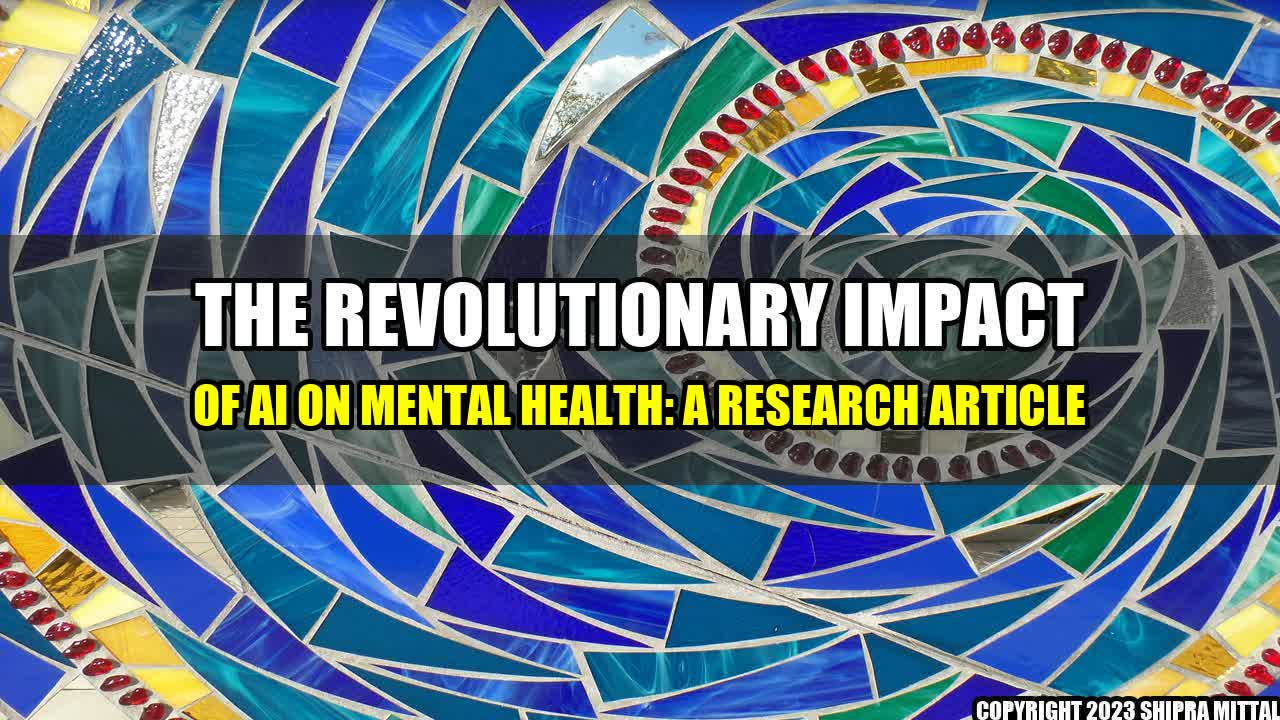
The rise of artificial intelligence has moved beyond the realm of science-fiction and into the real world. One of the most important breakthroughs in AI has been the use of machine learning algorithms to address mental health issues. AI has the potential to revolutionize the mental health field, making professional assistance available to all, regardless of location or economic status.
Take the example of Sophia, the robot developed by the AI company Hanson Robotics. Sophia is a marvel of technology, with the ability to mimic human expressions and engage in natural conversation. Sophia's creators believe that she could offer mental health counseling to patients, providing a level of personalized care that a human therapist would struggle to achieve.
But Sophia is just one example of AI's potential in mental health. In Australia, technology company Australian Associated Press has developed a chatbot called "Tess," which offers mental health support using an empathetic, natural language system. The chatbot connects users with a database of qualified professionals and can provide guidance on how to cope with anxiety and depression.
Another company leading the charge on AI and mental health is Woebot Labs, which has developed an AI-powered chatbot called "Woebot." Woebot uses cognitive behavior therapy (CBT) and other techniques to help users deal with negative thoughts and emotions. The chatbot is available 24/7, making support accessible outside of standard therapists' office hours.
These examples represent just the tip of the iceberg in the world of AI and mental health. As the technology advances, it will likely become an increasingly valuable tool for mental health professionals.
#AI #Mentalhealth #Chatbots #Therapy #Technology #Counseling #Artificialintelligence #Psychology #Healthcare
Research Article
Akash Mittal
Akash Mittal Tech Article
Share on Twitter Share on LinkedIn